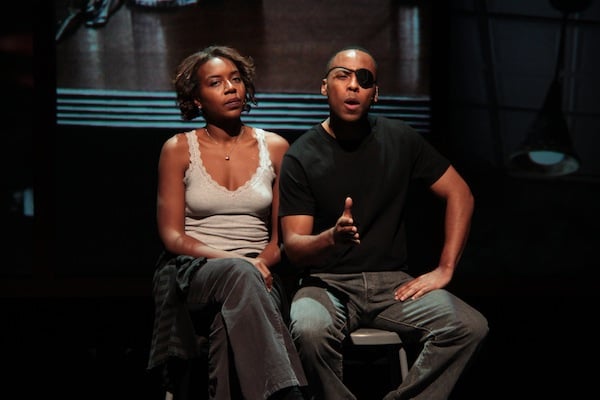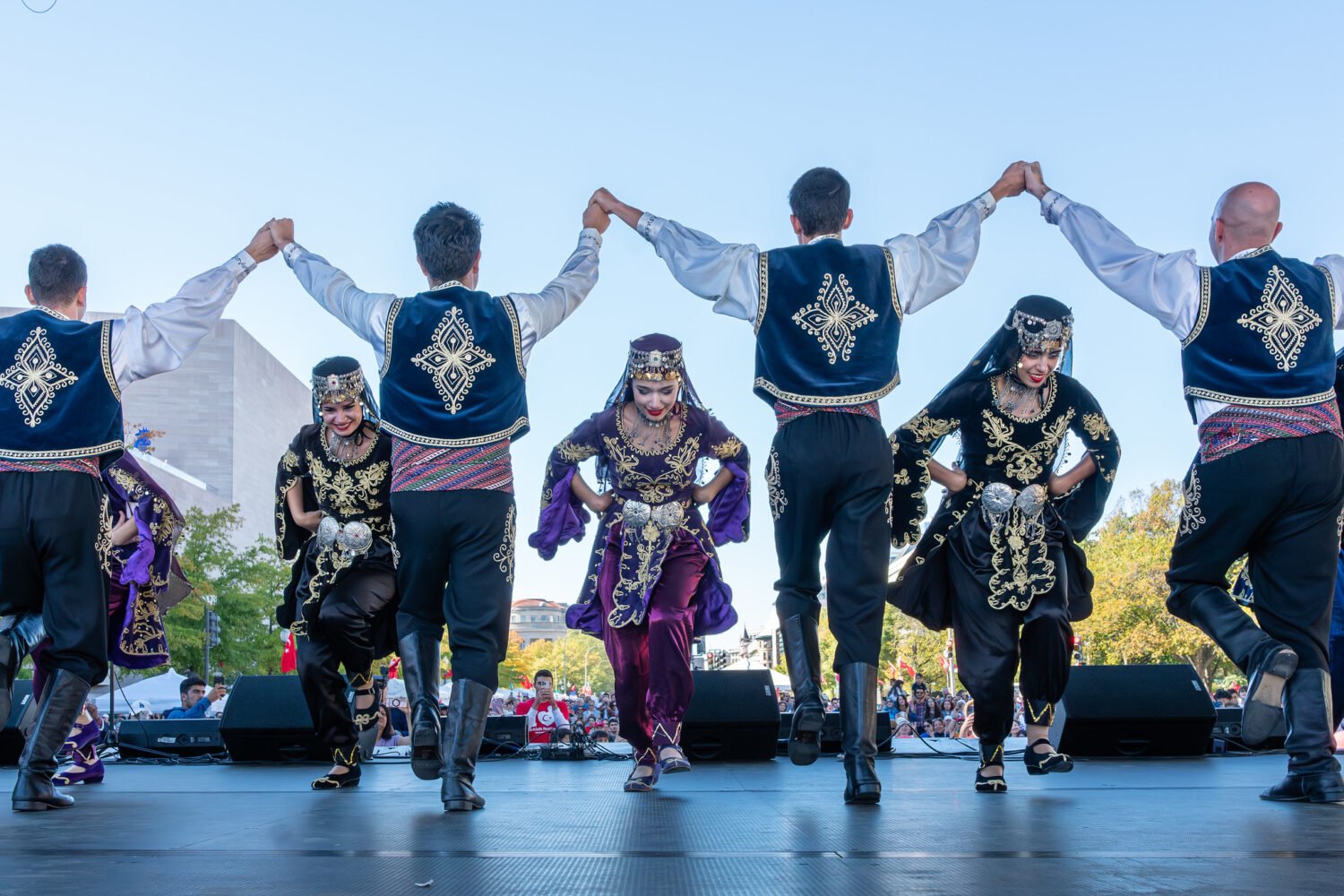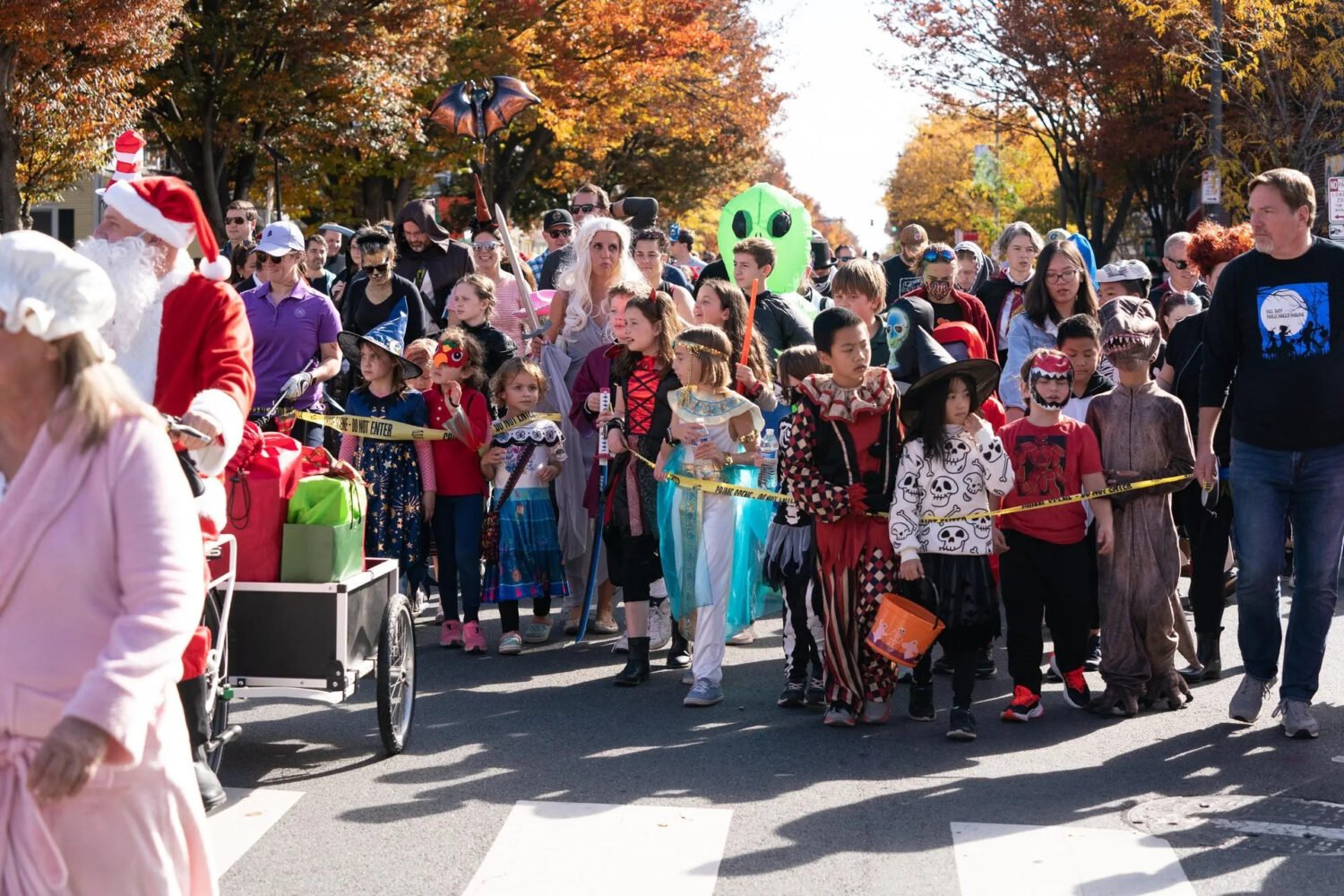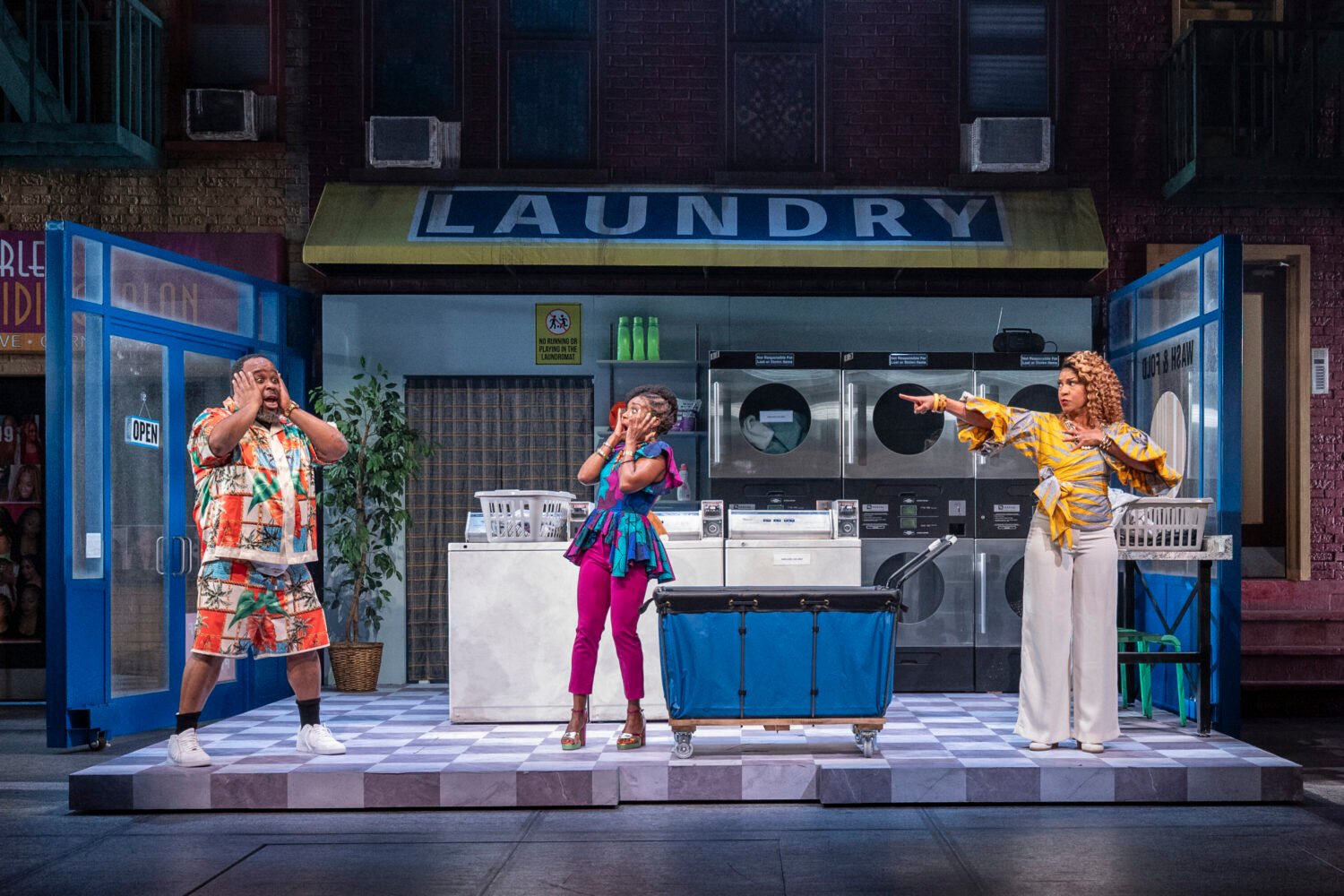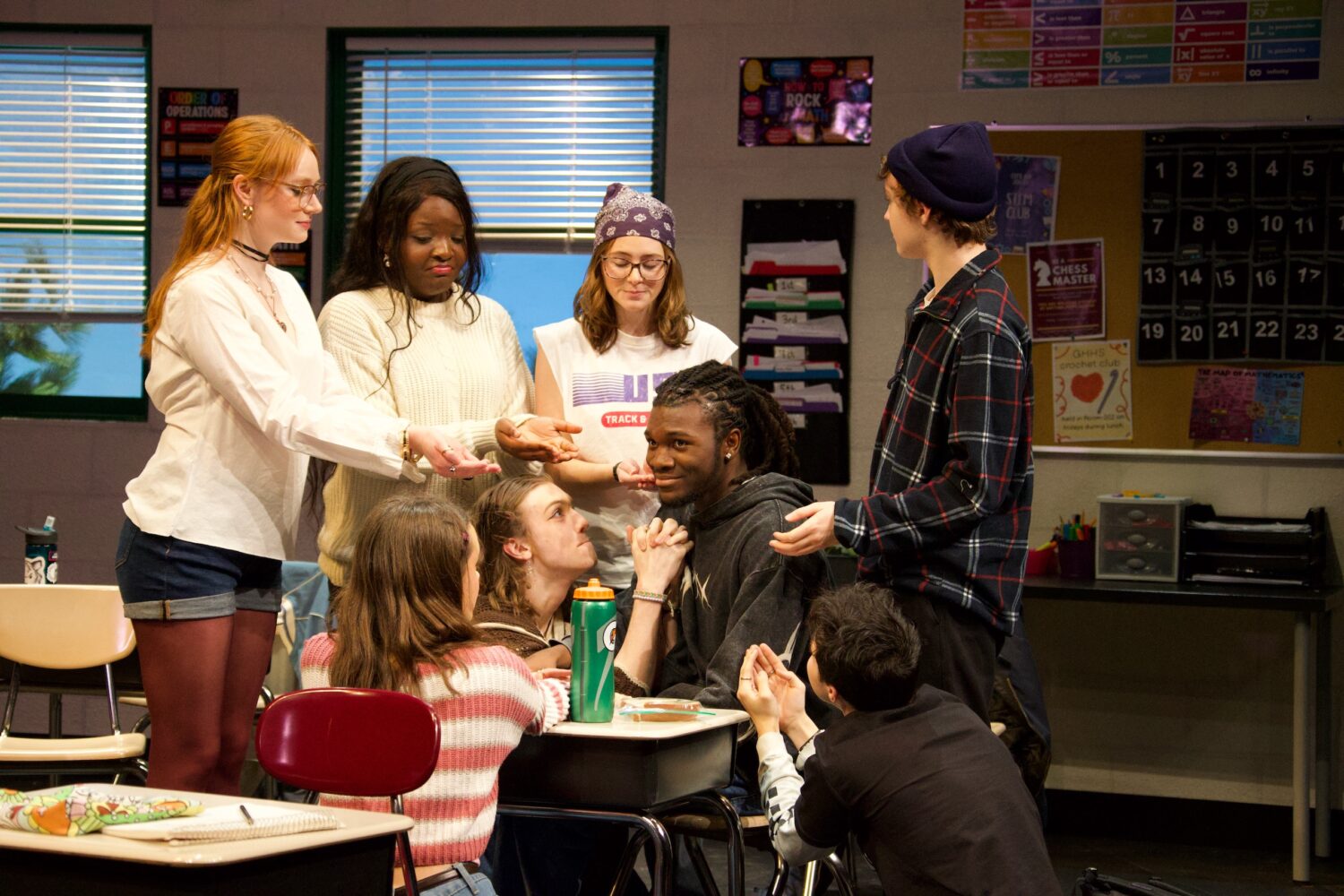Semeerah Luqmaan-Harris and Brandon Jones in Round House Thatre’s production of ReEntry. Photograph by Danisha Crosby
☆☆☆ stars out of four
The question of what happens to soldiers when they come home from deployment might feel like familiar territory, but ReEntry—a new “documentary” play at Round House Theatre drawn from hundreds of hours of interviews with Marines who returned from Iraq and Afghanistan—more frequently feels fresh.
Given the play’s subject matter, it’s easy to make assumptions about what ground ReEntry will cover: namely, posttraumatic stress disorder, or PTSD, and how families cope with the threat of danger to their loved ones. While ReEntry examines these ideas and others, it also delves beneath the surface to get at the root of the characters’ emotions and behavior.
Five actors are charged with embodying ReEntry’s roster of characters in a series of vignettes based on real-life interviews with veterans and their families. The cast members are versatile in the number of parts they play, whether it’s a family that includes two Marine sons, a career military couple, or a smattering of soldiers from across the country. The adept ensemble and the reality-based dialogue help us connect instantly and genuinely with the individuals they play.
In one scene, ReEntry’s authors, Emily Ackerman and K.J. Sanchez (who’s also the director), speak with a Marine who finds himself shying away from crowded bars and loud restaurants upon his return. The interviewers don’t stop at the symptom, instead getting to the “why” behind it. In this case, the soldier is feeling a loss of control over a situation. In another instance, a commanding officer (played by Larry Mitchell) walks the parents of Marines through the training their children will endure and in the process challenges a common stereotype that a culture of video-game violence has desensitized the current generation of young people to death and murder. “We [soldiers] fear interpersonal violence to our core,” he counters.
Brandon Jones and Ben Rosenblatt are particularly affecting as the two of the main characters—brothers, one too wounded to return to battle, the other scarred more emotionally than physically. As older brother John, Jones expresses a frustration with the civilian world that at first seems both amusing and understandable (take his “damn hippies” rage against the skateboarders in his neighborhood). But soon his ire increases to the point of beingalarming, demonstrating how quickly his emotions can overtake him.
The one misstep in tone is the use of tersely choreographed scene transitions, backed by rock music, that seem a strange hybrid of marching and dancing. While the language of the play can be coarse, and its subject matter deeply troubling (as with the hardened soldier who begins to wonder whether he has become a psychopath), the work never feels overly graphic or exploitative. ReEntry neither over-romanticizes patriotism nor gets bogged down in a particular political viewpoint. Ultimately, it drives home the idea of how integral the ability and desire to serve becomes to an individual’s identity once he or she joins the military. The mourning that results when injury or circumstance keeps a soldier from battle—and the repercussions that occur—can be equally horrifying and fascinating to behold.
ReEntry runs through October 30 at Round House Theatre in Bethesda. Tickets ($25 to 60) are available through Round House Theatre’s Web site.

